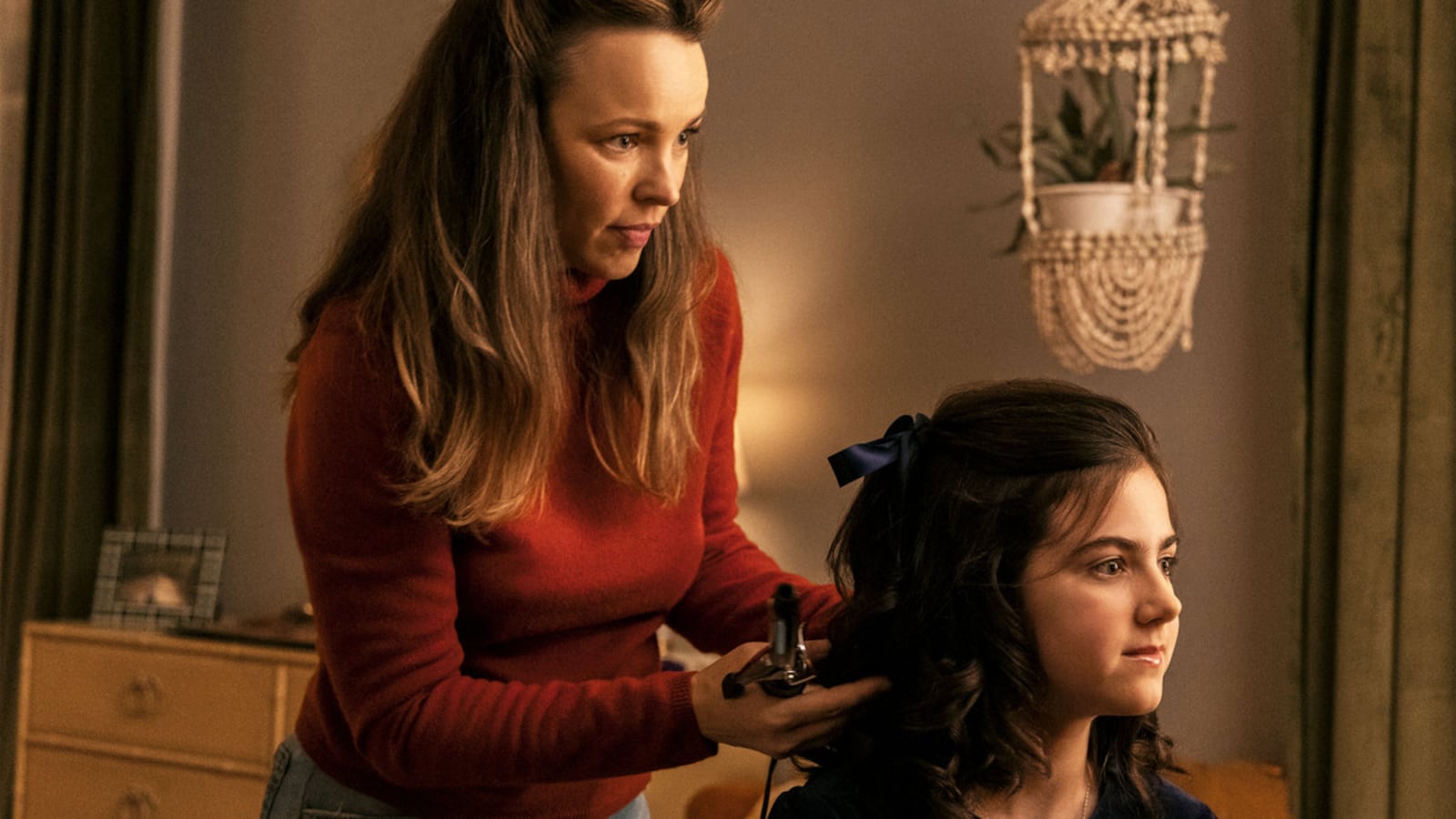There might be a movie missing on your “Favorite Movies of 2023” list. So you sat through Barbenheimer. You were moved by Killers of the Flower Moon. Air was a fun little gem. You had the wind knocked out of you with Past Lives. And Across the Spider-Verse was a swoopy, swinging, swell time. That’s all well and good. But I fear some folks have missed one of the finest movies of the year, what could be considered the best: Are You There God? It’s Me, Margaret.
It’s totally understandable—the movie came out in April, one of the only times of the year when Oscars bloggers are taking a break from forecasting the next big winners. “Are You There God” perhaps made the film sound like one of those preachy religious movies that were more popular than ever this year (although Judy Blume’s novel is a classic, and everyone should know its name). The film, however, is was actually about a totally worse subject matter: a young woman going through puberty. Oh, the horrors. It’s a miracle anyone saw this movie at all! Periods should not be televised.
I should note here that I’m being sarcastic, because some people actually think these falsities to be true. Puberty, periods, and young women are not gross.
Are You There God? It’s Me, Margaret is like if the warped middle school comedy of Pen15 met the sincere respect for young women seen in Blume’s young adult novels. Margaret (played by the impeccable Abby Ryder Fortson)—who has just moved from New York to the blah suburbs of New Jersey—is a character who is simultaneously someone who we relate to and feel empathy for, having once been adolescents. She makes us laugh with crushes for the worst guys in school, makes us think with interesting ponderings about religion, and makes us cry with sweet moments that she shares with grandma Sylvia (Kathy Bates). Margaret is the perfect protagonist, although she doesn’t think quite that highly of herself.
This is a film that sings with escalating tender moments. The humor is smart; we’re never laughing at the girls for being pre-pubescent, but rather joining in on the joke that we were all once a part of back in the day. Rachel McAdams, who stars as Margaret’s mother Barbara, is a revelation. And yet, for some reason, Margaret has become the most underrated film of the year. How?
Some may push back against this idea that Are You There God? is underrated—it’s based on one of the best-selling books of all time, it’s a critical darling, and McAdams is in talks to score an Oscar nom for her performance. How is that “underrated”?
While the movie has earned a swath of fans online, the box office numbers tell a different story. Domestically, Margaret earned just over $20 million, falling under other movies you might have forgotten came out this year like Magic Mike’s Last Dance and My Big Fat Greek Wedding 3. Ouch. That’s not exactly a success in the motion picture biz, especially with the film’s $30 million budget.
Forbes recently published an article calling the film the year’s “best reviewed movie” but “also a major flop.” When the first box office numbers for Margaret were released back in April, Deadline said it “fell greatly short” of expectations, and added this zinger: “Further complicating Margaret’s draw was the pic’s heavy young female topics, i.e. menstruation —not exactly the type of movie that’s easy to pull a boyfriend or husband into.” We women have heard that one before. Menstruation, periods—ah! Gross! Keep it to yourself!

Plus, McAdams isn’t guaranteed that Best Supporting Actress nod she deserves. As Barbara, she explained religion to impatient middle schoolers! She sat through puberty! She pulled at our heartstrings while assisting Margaret with her first period—and still, McAdams is not getting huge awards attention. She’s picked up a handful of nominations and a few wins—sharing the title with The Holdovers star Da’Vine Joy Randolph at the Los Angeles Film Critics Association Award—but no awards sites have her at the top of their lists in the category. GoldDerby has McAdams listed tenth, Variety at a more friendly sixth, and IndieWire has the actress listed below its “frontrunners” and “contenders” categories, scooted to the very end of the list in its “long shots” category.
But McAdams shouldn’t be the only one in talks for awards. Forston Ryder should be sweeping every Best Young Actor or Best Rising Star category and Kelly Fremon Craig’s script deserves to be battling Oppenheimer in the Best Adapted Screenplay competition. Awards aren’t everything in the Hollywood landscape; still, Margaret should have a seat at the table.
This rings especially true in a year where Barbie and Poor Things—which have earned comparisons for both being about the developing minds of young women—are at the forefront of discussion. I’d argue that Margaret is the best of the three, though, because it is both about girls transitioning into the scary world of womanhood and it is for a younger audience.

Barbie and Poor Things, while both about evolving young minds, have a surprising lack of prepubescent girls. Margaret has plenty, making it easier for young ladies to feel represented. But girls aged around 10-15 are often overlooked, so it’s not too surprising that a movie about dorky 13-year-olds would win less fanfare than one featuring bombshell Margot Robbie.
Alas, there’s hope: Blume’s original 1970 novel has had a lasting impact on culture. I read it back in 2010, when it was already 40 years old. As it nears 60, the story has yet to grow stale, and now has a film adaptation that is as equally strong as the literature. Although Margaret and her story may not have made a huge splash in Hollywood this year, hopefully, in coming years, the movie will become an established classic, just like the book.






